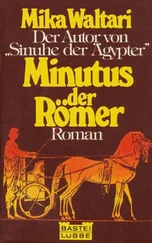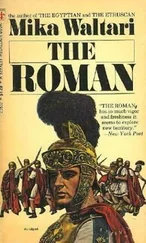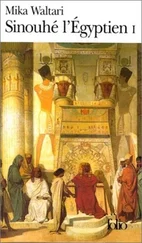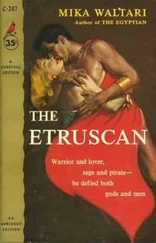“Then why in the devil’s name did you buy the thing?” I roared, infuriated. She looked at me indulgently and with a shake of her golden locks replied, “It was a unique opportunity and I was so fortunate as to have your month’s salary in my purse. In Venice such a chain would cost three or four times as much; I should have been mad not to take it, especially as such things never lose their value and are an excellent investment.”
“Allah help me!” I groaned. “I’m no miser, but neither am I a galley slave to live for days on end on pea soup and crusts, and all because of your extravagance.”
Giulia raised her hands to heaven in a prayer for patience. Then she screamed, “Extravagance! When I think only of our future and place our money in valuables which neither moth nor rust doth corrupt! If you want better food, then in God’s name earn a better wage.”
“Allah! Allah!” said I. “I never spy upon you, Giulia, but I know you have many good things in your larder-expensive fruit juices, for instance, fruits preserved in honey, and sweet cakes from the pastry cook. That sort of food’s no good to a man, but I can’t endure your habit of inviting crowds of gossiping women to eat it and of prattling with them from morning till night, while your husband when he comes home after a hard day’s work must put up with pea soup and stone-hard crusts.”
Giulia flushed and cried tearfully, “I’ve never in my life known a more ungrateful man than you! Of course I must offer my neighbors as good cakes as I taste in their homes, if not better. It’s the only way to sustain your reputation among them. You don’t love me any more or you’d never treat me like this.”
Our quarrels most often ended by my humbly begging Giulia’s pardon and assuring her that she was the dearest and kindest and cleverest wife that ever a man had. I would also reproach myself for my bad behavior. But such phrases came ever more frequently from the lips only and not from the heart, and I stooped to utter them because my body craved for her and could not bear the abstinence that she would otherwise impose. An invisible rift widened between us and sometimes I would sicken of it all and join my dog in the courtyard under the cold winter sky, with his warmth as my only Comfort. At such lonely moments I felt once more a stranger in the world, and wondered for what strange pattern the great Weaver could use so patchy and brittle a thread as myself.
Giulia’s irritability arose partly from her ill success as a soothsayer, for although her neighbors politely clapped their hands and admired her powers she earned nothing. The capital abounded in so many fortunetellers, astrologers, and throwers of chicken bones, of all races and creeds, besides heiromancers who practiced divination by means of blood and entrails, that it was hard for a newcomer to compete with them. Though Abu el-Kasim diligently sang her praises in the bazaar, he was not a man to inspire confidence. We began to feel shut out again from this mysterious city, where success depended less on reasoned action than on chance.
I slipped imperceptibly into the Ottoman way of life and soon ceased to be regarded as a foreigner; with my gift for languages I combined the faculty of changing my skin, as it were, and assuming a new identity. Piri-reis’s old sea janissaries were friendly, while his clerks and cartographers grew accustomed to seeing me among them every day. Now and again I would be given a task suited to my talents-some errand to the Seraglio library, perhaps, where learned Mussulmans and Greeks were busy with the translation and copying of ancient manuscripts. But among these scholars I found no one to be my friend.
I saw the Sultan once, at a distance, attended by a brilliant throng. A party of bowmen surrounded him as he rode› and as they might
not turn their faces from him, those in front had to run backward. When on Fridays the Sultan rode to his father’s mosque, anyone-even the poorest-might present a petition to him at the end of a long, cleft stick. Many of these petitions were actually read and were dispatched by the Divan to the appropriate officials, for the wrongs recorded therein to be redressed.
The more I thought about this vast empire, built up by the Ottomans from small beginnings and now comprising within its borders more races than I could name, the more deeply impressed was I by the remarkable statesmanship that held it together and made life there agreeable and safe. This realm was governed by milder, juster laws than those of Christendom, and the moderate taxes were not to be compared with the merciless extortions practiced by so many Christian princes. And further, the tolerance shown by Ottomans toward other _ religions was something unheard-of elsewhere; no one was persecuted for his faith save the Persian Shiites, the heretics of Islam. Christians and Jews had their own places of worship and might even observe their own laws if they so chose.
Christians indeed had one heavy tribute to pay, in that every third year they must hand over their sturdiest sons to be trained from their eleventh year upward as the Sultan’s janissaries. But these boys did not complain; they were proud of the honor and became more vigorous champions of Allah than Moslems born and bred.
The High Porte was indeed the Refuge of all Peoples. Not only did the core of the Sultan’s army consist of professional soldiers born of Christian parents, and adopted, brought up, and trained by Turks; the highest appointments in the Empire were held by men of every race who were slaves of the Sultan. To him alone they owed advancement, to him their heads were forfeit if they failed in prompt and meticulous execution of his commands. The Sultan bestowed great power on these men, but his incorruptible agents constantly toured every district of every province and listened to the people’s complaints; thus the local governors were prevented from overstepping the limits of the authority vested in them by custom and the Sultan’s laws.
My life was now bound up with the welfare and success of this empire, and so at first I strove to see everything in the most favorable light. There were signs that the Sultan was preparing for a great campaign, and without wishing ill to anyone I was keenly curious to know what would become of the King of Vienna. I had had experience of
the Emperor’s poverty and did not believe he could send much help to his brother; moreover an inherent feature of the Ottoman Empire was its tendency to expand. In this it followed the doctrines of Islam, which preached unceasing war against the unbeliever. Also the janissaries grew restless and discontented if the Sultan failed to lead them at least once a year into a war in which plunder and fresh honors were to be gained.
Whereas the Emperor Charles’s campaigns cost enormous sums and far exceeded his economic resources, the Sultan’s wars by an ingenious and farsighted arrangement paid for themselves. His regular cavalry, the spahis, drew their income from farms which they held from the Sultan and which were worked by slaves taken in battle. Thus these spahis served their sovereign for almost no wages. In districts bordering the Christian countries light cavalrymen, known as akindshas, lived on a war footing; their traditional banditry inclined them to enter the service of the Sultan. Similar tastes brought a vast number of idle men to the Sultan’s colors as auxiliary troops, which were commonly thrown in as cannon fodder at the forefront of any attack. The Sultan therefore found himself in a far more advantageous position than the Christian leaders and could, even while sustaining losses, slowly but surely wear down enemy resistance. And so, when like Giulia I indulged in dreams of a splendid future, I saw nothing fantastic in the idea that one day I might find myself governor of some wealthy German city, in reward for my services.
Читать дальше











